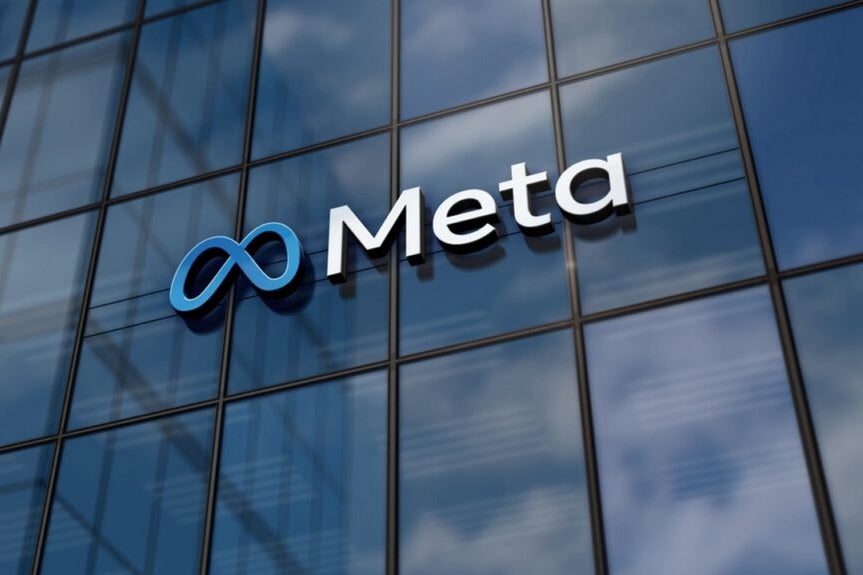Meta’s Ambitious $200 Billion Bet on AI: A Game-Changer in Data Infrastructure
Meta Platforms, the parent company of Facebook, Instagram, and WhatsApp, has embarked on an extraordinary journey with its ambitious $200 billion investment in data infrastructure aimed at revolutionizing artificial intelligence (AI). This monumental financial commitment is not just a strategic maneuver; it symbolizes Meta’s determination to dominate the AI landscape and reshape the future of digital infrastructure.
Understanding the Scope of Meta’s Investment
The $200 billion investment by Meta is slated to bolster its data centers significantly, enhancing its capabilities in AI and machine learning. This substantial investment will focus on several critical areas:
- Expansion of Data Centers: Meta plans to build new data centers across various regions, increasing its computational power and storage capacity.
- Advanced AI Research: A portion of the funds will be dedicated to advancing research in AI, enabling the development of more sophisticated algorithms and technologies.
- Enhancing User Experience: By improving data infrastructure, Meta aims to deliver faster and more reliable services across its platforms.
- Sustainability Initiatives: Meta is also expected to implement green technologies in its data centers, aligning with global sustainability goals.
The Rationale Behind the Investment
But why such a staggering investment? The tech industry is in a race to harness the power of AI for everything from personalized advertising to moderating content. Meta recognizes that to maintain its competitive edge and provide unparalleled services, it must invest heavily in the backbone of digital technology—data infrastructure.
Moreover, as the demand for AI applications continues to surge, the need for robust, scalable, and efficient data centers has never been more critical. Meta’s investment is a proactive measure to ensure it can support the increasing data load and computational demands that come with AI advancements.
Implications for the Tech Industry
Meta’s ambitious $200 billion bet on AI has far-reaching implications not just for the company but for the tech industry as a whole. Here are several key aspects to consider:
1. Setting New Standards in Data Infrastructure
By investing heavily in data centers, Meta sets a benchmark for other tech companies. This move could inspire competitors to reevaluate their own data infrastructure strategies, driving a wave of investment across the industry. The result? A significant upgrade in overall data handling capabilities across platforms.
2. Accelerating AI Development
With enhanced data infrastructure, Meta can accelerate its AI research and development. This means faster iterations on AI models, more robust training datasets, and ultimately, more innovative applications. The potential for breakthroughs in areas such as natural language processing, computer vision, and machine learning algorithms is immense.
3. Job Creation and Economic Impact
Such a monumental investment is poised to create thousands of jobs, not only in tech but also in construction, management, and maintenance of data centers. This job creation will have a ripple effect on local economies, particularly in regions where new data centers are established.
4. Emphasis on Sustainability
Meta’s commitment to sustainability in its data centers signals a shift in the industry towards greener practices. As data centers consume vast amounts of energy, Meta’s push for sustainable technologies could set a precedent, encouraging other companies to adopt eco-friendly practices.
Challenges Ahead
Despite the promising outlook, Meta’s ambitious project is not without its challenges. Here are some potential hurdles:
1. Regulatory Scrutiny
As Meta continues to expand its data centers and AI capabilities, it may face increased scrutiny from regulatory bodies. Issues related to data privacy, monopolistic practices, and ethical AI use could arise, necessitating careful navigation of the regulatory landscape.
2. Technological Hurdles
The rapid pace of technological change means that Meta must stay ahead of the curve. As new technologies emerge, the company will need to continuously adapt its infrastructure to leverage these advancements effectively.
3. Competition
Meta is not the only player in the AI and data infrastructure space. Companies like Google, Amazon, and Microsoft are also investing heavily in AI and data centers. Meta must differentiate itself and provide unique value to remain competitive.
Looking to the Future
Meta’s $200 billion investment in AI is a clear signal of its ambitions to become a leader in the AI space. As the company fortifies its data infrastructure, we can expect significant advancements in AI applications, a broader range of services, and perhaps even new business models that leverage AI’s capabilities.
In the coming years, we may witness:
- Improved AI Services: From smarter content moderation to personalized user experiences, the advancements in AI could lead to transformative changes in how users interact with Meta’s platforms.
- Innovative Partnerships: Meta may look to collaborate with startups and research institutions to push the boundaries of AI technology, driving innovation at an unprecedented pace.
- A Greater Focus on Ethics: With increased AI capabilities, Meta will likely need to address ethical considerations, ensuring responsible AI usage and protecting user privacy.
Conclusion
Meta’s ambitious $200 billion bet on AI is not merely an investment; it is a strategic pivot that could redefine the tech landscape. By enhancing its data infrastructure, Meta is positioning itself to lead in the AI revolution, setting standards for others to follow. As we look ahead, the implications of this move will be felt across the industry, shaping the future of technology and influencing how we interact with digital platforms.
As this journey unfolds, it will be fascinating to observe how Meta navigates the challenges and opportunities that arise in its quest to dominate the AI space, ultimately changing how we think about data, technology, and the future of human-computer interaction.
See more Future Tech Daily

